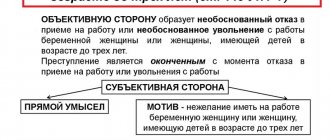Penalty
The liability of customers and suppliers in the form of penalties is established for violation of deadlines for fulfilling contractual obligations in the amount of 1/300 of the key rate of the Central Bank of the Russian Federation in effect on the date of payment of penalties from the amount not paid on time.
Penalty = Contract price x (1/300 x Key rate) x number of days of delay
https://www.youtube.com/watch?v=ytabout
The Ministry of Finance of the Russian Federation in a letter dated 04/13/2016 No. 02-04-06/21780 explained that penalties are accrued for each calendar day of delay, including weekends and holidays, starting from the day following the day of expiration of the obligation under the contract.
If the supplier has not fully fulfilled its obligations, the amount of the penalty is reduced by an amount proportional to the volume of obligations fulfilled by the supplier. When calculating the number of days of delay, you should exclude the days required for the customer to accept (register its results) the goods delivered, the work performed, the services rendered, unless otherwise provided by the contract (Letter of the Ministry of Finance of Russia dated November 7, 2017 No. 24-03-08/73293).
The fine is established for violation of other contractual obligations not related to deadlines, for example, for each fact of failure by the parties to fulfill their obligations under the contract. Decree of the Government of the Russian Federation No. 1042 establishes fixed fine amounts. Let's consider their varieties.
How to calculate a penalty for a supplier
Calculation of penalties
- Penalties for the supplier are calculated in accordance with Part 7 of Art. 34 44-FZ, as 1/300 of the key rate of the Central Bank of the Russian Federation from the contract price and days of delay or:
Penalty = Contract price x (1/300 x Key rate) x number of days of delay
- If the supplier has already fulfilled part of the contract, then when calculating the penalty, the contract price must be reduced by the volume of fulfilled obligations.
- Penalties begin to accrue on the next calendar day after the period established by the contract. According to the letter of the Ministry of Finance of Russia dated 7 No. 24-03-08/73293, it is necessary to exclude the days of acceptance of goods when calculating the period of delay, unless otherwise specified in the contract.
- When calculating penalties, you must use the key rate of the Central Bank of the Russian Federation fixed by law - 1/300. It is impossible to change the share of the bet, even if both parties agree to this (position of the Arbitration Court of the Central District dated March 26, 2015 in case No. A64-3838/2014).
Calculation of fines
Fines for the supplier in public procurement are calculated according to the Decree of the Government of the Russian Federation No. 1042. They depend on the price at which the contract was concluded or the cost for the stage of the contract, but not on the initial maximum price.
- Both a fine and a penalty can be applied to the supplier at the same time. For example, if the supplier delivered an incorrect product and was late on time. At the same time, the contract must stipulate that fines and penalties are collected in different cases and do not replace each other.
- The total amount of the penalty that can be demanded from the supplier should not exceed the contract price. This rule applies to both fines and penalties.
What are the fines under 44-FZ?
Law No. 44-FZ establishes strict rules for public procurement. For their violation, the customer will be held accountable: from disciplinary to criminal (Article 107 44-FZ). Most often, monetary punishment is applied to government customers. They are required to pay an administrative fine (a fixed amount) or a penalty (a fee for each day of delay).
Penalties will be applied to the customer for violation of 44-FZ at any stage of the procurement:
- When planning purchases and drawing up schedules.
- Choosing a procurement method, calculating the NMCC.
- During the tender, conclusion and payment of the contract.
- When maintaining a register of contracts and interacting with the FAS.
Sanctions for customers are prescribed in the Code of Administrative Offenses (CAO RF). According to it, violating customers are almost always fined, and in rare cases, disqualified for up to 2 years. In this case, responsibility most often lies with the customer’s officials, for example, contract managers, members of the purchasing commission. An employee can be held accountable even after his dismissal, if the statute of limitations for the violation has not expired - within 1 year.
Fines are imposed on organizations less often, because then money for the benefit of the budget is collected from the budget organization. But if the offense is serious, then both the employee and the organization will be held accountable.
According to the Administrative Code, the fine for employees can reach 50 thousand rubles, for a legal entity of the customer - 100-300 thousand rubles.
Please note that sanctions for violations in government procurement also apply to contractors. The amount of the fine under 44-FZ for suppliers is most often comparable to the amount of the fine for the customer. But it is not established by the Administrative Code, but is calculated from the contract price according to the rules from Government Resolution No. 1042.
Criminal liability of suppliers and customers
Government procurement is regulated, in addition to the above, by certain articles of the Criminal Code:
- Art. 200.4 of the Criminal Code of the Russian Federation - Abuses in the field of procurement of goods, works, services to meet state or municipal needs. In the most severe cases, the offender faces:
- a fine of 200 thousand to 1 million rubles or the amount of income for a period of six months to three years
- forced labor for up to five years
- imprisonment for up to seven years
- Art. 200.5 of the Criminal Code of the Russian Federation - Bribery of a contract service employee, contract manager, member of the procurement commission. The most severe punishments for the one who committed bribery:
- a fine of 1 to 2.5 million rubles or the amount of income for a period of one to three years
- imprisonment for up to eight years, possibly together with a fine of up to 40 times the kickback amount and/or a ban on holding certain positions (engaged in certain activities) for up to five years
Punishment is also provided for representatives of the customer who bribed the contractor:
- a fine of 2 to 5 million rubles or the amount of income for a period of two to five years, possibly with a ban on holding certain positions (engaged in certain activities) for up to seven years
- imprisonment from 7 to 12 years, possibly together with a fine of up to 50 times the kickback amount and/or a ban on holding certain positions (engaged in certain activities) for up to seven years
Moreover, violation of Law No. 44-FZ is not the only thing in the field of procurement that is subject to criminal prosecution. Fraud, bribes, abuse of power, misappropriation of funds from the budget are also criminal offenses.
Fines for the customer

For each fact of failure by the customer to fulfill obligations stipulated by the contract, the amount of the fine is established in the form of a fixed amount, determined in the following order:
- 1000 rubles if the contract price does not exceed 3 million rubles (inclusive);
- 5000 rubles, if the contract price is from 3 million rubles to 50 million rubles (inclusive);
- 10,000 rubles, if the contract price is from 50 million rubles to 100 million rubles (inclusive);
- 100,000 rubles if the contract price exceeds 100 million rubles.
The fine should be calculated based on the contract price, and not on the initial (maximum) price of such a contract (decision and order of the Kemerovo OFAS dated November 28, 2017 in case No. 828/3-2017).
What else needs to be included in the contract regarding sanctions?
The contract should include a provision that the total amount of the penalty cannot exceed the contract price . In the practice of the FAS, there have been cases when the absence of such a provision was recognized as a violation of the law (decision of the Chelyabinsk OFAS dated November 3, 2017 in case No. 257-VP/2017).
If a separate type of contract is concluded, which is additionally regulated by other regulations, the customer should take this into account. For example, a contract for electricity supply provides for a penalty in accordance with Law No. 35-FZ “On Electric Power Industry”.
The customer must specify in the contract the specifics of the application of penalties and interest. It is not allowed to simply indicate that in the event of certain violations, a penalty will be collected from the supplier based on the law. This provision of the contract may be recognized by the FAS as a violation of procurement legislation (decision of the Omsk OFAS dated November 15, 2017 No. 03–10.1/295–2017).
Punishment for failure to pay on time
Customers must pay for contracts within clear deadlines. The rules are established by Art. 34 44-FZ: for all purchases - up to 30 days from the date of signing the acceptance certificates, for purchases among small and medium-sized enterprises - up to 15 days. If the deadlines are missed, the customer will be held accountable under Art. 7.32.5 Code of Administrative Offences.
Punishment will be imposed on an employee who pays a contract late or violates the payment procedure - this will be a fine of 30 to 50 thousand rubles. If an employee repeats the violation, he will be disqualified for a period of 1 to 2 years.
In addition, the supplier may demand a penalty from the customer if he pays the contract late (Part 5 of Article 34 of 44-FZ). Penalties are charged for each day of delay, including holidays and weekends, according to the formula: 1/300 of the current key rate of the Central Bank of the Russian Federation * of the amount not paid on time. Penalties will not be charged for the days required for the customer to accept the goods (letter of the Ministry of Finance dated November 7, 2017 No. 24-03-08/73293).
Separately, the customer will be charged a fine if he does not fulfill his obligations under the contract. The amount of the fine is calculated according to the rules from Government Resolution No. 1042 (clause 9):
- 1 thousand rubles, if the final contract price is not more than 3 million rubles;
- 5 thousand rubles, if the contract price is 3-50 million rubles;
- 10 thousand rubles, if the price is 50-100 million rubles;
- 100 thousand rubles, if the price is more than 100 million rubles.
In this case, the total amount of fines accrued to the customer within the framework of one purchase should not exceed the contract price (clause 12 of PP No. 1042).
In order not to make mistakes in terms of contract payment and to avoid fines, calculate the dates of the procurement stages in advance and keep track of them. The free deadline calculator in the online service for government customers Kontur.Snab will help you quickly plan your deadlines.
We suggest you read: What documents must be attached to the tax return when purchasing an apartment
Violations in the customer’s work are usually identified by FAS or prosecutors during inspections. Then the antimonopoly authority initiates a case of an administrative violation, considers it and imposes a fine on the customer or his employees. At the same time, they will not be held accountable if the violation is discovered 1 year after its commission.
The punishment can be challenged in court. This should be done precisely in three cases:
- If the fine was imposed illegally, the statute of limitations has expired, the employee is not guilty, etc.
- If the procedure for bringing to administrative responsibility is violated, the protocol on bringing to administrative responsibility was drawn up incorrectly, the accused was not notified of the fine or the time of its consideration in court.
- If the customer fails to fulfill his obligations under the contract due to force majeure or the fault of the supplier. These mitigating conditions are prescribed in Part 9 of Art. 34 44-FZ.
When going to court, the customer can refer to the fact that 44-FZ has been violated for the first time or the violation is minor. There are examples in judicial practice when, in the first case, the court reduced the amount of the fine, and in the second, it canceled the punishment altogether.
A decision on an administrative offense must be challenged within 10 days from the date of its receipt. After this, the resolution will come into force.
Signs of a corruption offense
Using official authority, a customer representative can deliberately violate state interests for personal gain. The criminal act uses a wide range of tools:
- Setting an unreasonable price. About 40% of corruption crimes in procurement involve inflating contract prices. A greatly underestimated cost may indicate that work on this order will not be carried out. Participants in a criminal conspiracy receive and divide public funds among themselves.
- Setting unrealistic time to complete the work. The scheme is used when the desired company has already started fulfilling the order. The remaining participants are eliminated due to the inability to meet the time allotted by the technical task.
- Request from participants supporting documents that are not required. These may be product certificates or service licenses.
- Combining several fundamentally different lots into one. The screening of participants is due to the inability of most organizations to simultaneously provide different types of services or supply goods not related to the same nomenclature.
- Drawing up a vague technical specification. It is not clear from the conditions what characteristics the item of purchase should have.
- Purchasing an unreasonable product or service. Spending public funds on the purchase of luxury goods or other goods that do not correspond to the official status of the customer.
- Establishing an inconvenient order payment scheme. One of the varieties of this instrument is a long deferment of payment.
- Falsification of data in the EIS. Including entering data using the Latin alphabet.
- Rejection of an application from an objectionable contractor under a fictitious pretext. Most often, violators cite an incomplete set of documents provided by the bidder as the basis for refusal.
Often the schemes do not formally violate the law, but lead to serious damage and inhibition of economic development.
Fines for the supplier - SMP or SONO
Special liability conditions are established for cases of concluding a contract with SMP/SONO.
For each fact of non-fulfillment or improper fulfillment by the supplier (contractor, performer) of obligations stipulated by the contract based on the results of procurement from SMP/SONO, the amount of the fine is established in the form of a fixed amount, determined in the following order:
- 3% of the contract (stage) price if the contract (stage) price does not exceed 3 million rubles;
- 2% of the contract (stage) price if the contract (stage) price is from 3 million rubles to 10 million rubles (inclusive);
- 1% of the contract (stage) price if the contract (stage) price is from 10 million rubles to 20 million rubles (inclusive).

The situation is similar if the announced purchase for SMP/SONO did not take place due to the recognition of only 1 application as meeting the requirements and the subsequent conclusion of a contact under clause 25, part 1, art. 93 from a single supplier, fines must be prescribed in accordance with the terms of the failed purchase under clause 4 of the Government of the Russian Federation No. 1042 for NSR/SONO entities (decision of the Ivanovsky OFAS dated October 23, 2021 No. 07–15/2017–189).
Table of fines of the Code of Administrative Offenses under 44-FZ as amended for 2021
| article of the Code of Administrative Offenses | Type of violation | Fine amount |
Wrong choice of procurement method | ||
| Part 1 Article 7.29 | The procurement method was chosen in violation of the requirements of 44-FZ | 30,000 ₽ - official |
| Part 2 Article 7.29 | The purchase should be carried out in the form of a competition or auction, but the customer chose a different method | 50,000 ₽ - official |
| Part 2.1 Article 7.29 | Conducting a competition with limited participation, a two-stage or closed competition, in cases not provided for by 44-FZ. The procedure and deadlines for sending documents to the Federal Antimonopoly Service that are needed to agree on a closed procurement or concluding a contract with a single supplier have been violated. | 50,000 ₽ - official |
| Part 1 Article 7.29.3 | The schedule or procurement plan includes:
| 20,000 - 50,000 ₽ official |
Violations during procurement preparation: justification of the NMCC, placement of documents, establishment of requirements and approval of documentation | ||
| Part 2 Article 7.29.3 | The procedure or form of justification of the NMTsK, justification of the procurement object (except for the description of the object) has been violated | 10,000 ₽ - official |
| Part 3 Article 7.29 | The procedure or terms for holding mandatory public discussions on procurement have been violated or the discussion has not been held | 30,000 ₽ - official |
| Information and documents that, according to 44-FZ, must be placed during a competition and auction, are placed in the Unified Information System in violation of the deadline: | ||
| Part 1 Article 7.30 |
| 5,000 ₽ - official 15,000 ₽ - legal entity |
| Part 1.1 Article 7.30 |
| 30,000 ₽ - official 100 thousand rubles - legal entity |
| Information and documents that, according to 44-FZ, must be placed when conducting a request for quotation, request for proposals, procurement from a single supplier, are placed in the Unified Information System in violation of the deadline: | ||
| Part 1.2 Article 7.30 |
| 3,000 ₽ - official 10,000 ₽ - legal entity |
| Part 1.3 Article 7.30 |
| 15,000 ₽ - official 50,000 ₽ - legal entity |
| Part 1.4 Article 7.30 | Placing information in the UIS in violation of:
| 15,000 ₽ - official 50,000 ₽ - legal entity |
| Part 3 Article 7.30 | The UIS does not contain information and documents that must be posted in accordance with 44-FZ | 50,000 ₽ - official 500,000 ₽ - legal entity |
| Part 4 Article 7.30 | Installed not provided for by 44-FZ:
| official - 1% of the NMCC, but not less than 5,000 ₽ and not more than 30,000 ₽ |
| Part 4.1 Article 7.30 | The description of the procurement object indicates trademarks, patents, industrial designs, places of origin of the goods or the name of the manufacturer and other requirements that limit the number of participants (except for cases provided for by 44-FZ). One lot includes procurement items that are not technologically and functionally related to each other. | official - 1% NMCC, but not less than 10,000 and not more than 50,000 rubles |
| Part 4.2 Article 7.30 | The procurement documentation was approved in violation of 44-FZ | 3,000 ₽ - official |
Violations in drawing up the schedule | ||
| Part 4 Article 7.29.3 | The schedule and changes to it were approved or posted in the Unified Information System in violation of the deadline. | 30,000 ₽ - official |
| Part 1.5 Article 7.30 | Procurement information has been changed in the schedule. The customer did not wait one day from the moment of the changes and posted a notice in the Unified Information System. | 30,000 ₽ - official |
| Part 1.6 Article 7.30 | Information about the procurement is not included in the schedule, but the customer posted a notice of its implementation in the Unified Information System or sent invitations to participants. | 30,000 ₽ - official |
Violations during procurement: from posting a notice to signing a protocol | ||
| Part 1.7 Article 7.30 | The customer posted a notice of procurement in the Unified Information System or sent an invitation to participants, although the procurement was found to be unfounded and an order was issued or violations in the order were not eliminated. | 30,000 ₽ - official |
| The participant is not allowed to participate in the procurement, is suspended from participation, or his application is recognized as improper on grounds not provided for by 44-FZ. According to 44-FZ, the participant should not have been allowed to participate in the procurement, but his application was recognized as proper. The procedure established by the documentation has been violated:
| ||
| Part 2 Article 7.30 | official - 1% of the NMCC, but not less than 5,000 ₽ and not more than 30,000 ₽ | |
| Part 6 Article 7.30 |
| official - 5% of the NMCC, but not more than 30,000 ₽ |
| Part 2.1 Article 7.30 | The protocol for determining the winner of the procurement was drawn up with violations | 10,000 ₽ - official |
| Part 7 Article 7.30 | The winner of the purchase was determined in violation of 44-FZ | 50,000 ₽ - official |
| Part 8 Article 7.30 | The deadlines for filing applications in cases not provided for by 44-FZ have been reduced. The procedure and terms for canceling the purchase were violated. | 30,000 ₽ - official |
| The procurement protocols were signed in violation of the deadlines: | ||
| Part 13 Article 7.30 |
| 3,000 ₽ - official |
| Part 14 Article 7.30 |
| 30,000 ₽ - official |
We suggest you read: How weekends are taken into account when notifying about a work book
Violation of deadlines for returning application security | ||
| The money contributed by participants as security for applications was returned in violation of the procedure or deadline: | ||
| Part 1 Article 7.31.1 |
| 5,000 ₽ - official 30,000 ₽ - legal entity |
| Part 2 Article 7.31.1 |
| 15,000 ₽ - official 90,000 ₽ - legal entity |
Violations during the conclusion, execution and modification of contracts | ||
| Part 1 Article 7.32 | When concluding a contract, the conditions announced by the customer for determining the supplier or the conditions for executing the contract were violated. | official - 1% of the NMCC, but not less than 5,000 and no more than 30,000 legal entity - 1% of the NMCC, but not less than 50,000 and no more than 300,000 |
| Part 2 Article 7.32 |
| official - double the amount of additional funds spent or prices of goods, works, services that became the subject of the offense |
| Part 3 Article 7.32 | The customer violated the terms of the contract or evaded its conclusion. | 50,000 ₽ - official |
| Part 4 Article 7.32 | The customer has changed the terms of the contract (including increased the price of goods, works, services), if 44-FZ prohibits changing the terms. | 20,000 ₽ - official 200,000 ₽ - legal entity |
| Part 5 Article 7.32 |
| official - double the amount of additional funds spent or prices of goods, works, services that became the subject of the offense |
| Part 6 Article 7.32 | The procedure for terminating a contract in case of unilateral refusal to fulfill the contract has been violated | 50,000 ₽ - official 200,000 ₽ - legal entity |
| Part 7 Article 7.32 | Actions or inactions due to which the supplier failed to fulfill its obligations under the contract, therefore causing significant harm to the interests of society and the state. In this case, actions or inactions do not fall under criminal liability. | official and individual entrepreneur - 5-15% of the value of unfulfilled obligations stipulated by the contract, but not less than 30,000 rubles or disqualification for up to 2 years legal entity - from one to three times the value of unfulfilled obligations, but not less than 300,000 rubles |
| Part 8 Article 7.32 | The requirements of the legislation in the field of procurement were not met when conducting an examination of the supplied goods, works, services or individual stages of contract execution, which, according to 44-FZ, must be carried out by experts or expert organizations. | 20,000 ₽ - official |
| Part 9 Article 7.32 | Documents on acceptance of the delivered goods, works, services or individual stages of contract execution have not been drawn up. Or the customer refused to accept the goods, but did not send a reasoned refusal to the supplier. | 20,000 ₽ - official |
| Part 10 Article 7.32 | The delivered goods, works, services are accepted by the customer, although they do not comply with the terms of the contract. At the same time, the supplier did not eliminate the discrepancy, which led to additional expenditure of budget funds or a decrease in the number of goods supplied, the volume of work and services. | 20,000-50,000 ₽ - official |
| Part 1 Article 7.32.5 | Violation of the deadline and procedure for payment of a government contract or advance payment | 30,000-50,000 ₽ - official |
| Part 2 Article 7.32.5 |
| disqualification from 1 to 2 years - official |
Incorrect procedure for maintaining the register of contracts, the register of unscrupulous suppliers (RNP) | ||
| Part 1 Article 7.31 | The RNP includes deliberately false information | 50,000 ₽ - official |
| Part 2 Article 7.31 | The information that needs to be included in the RNP was not sent or was sent to the FAS late. Information and documents that, according to 44-FZ, must be included in the register of contracts, were not sent or were sent late to the authorities authorized to maintain the register of contracts. | 20,000 ₽ - official |
Procurement under 44-FZ in the field of energy supply | ||
| Part 11 Article 9.16 | Procurement that does not meet energy efficiency requirements | 30,000 ₽ - official 100,000 ₽ - legal entity |
Purchases from SMP | ||
| Part 11 Article 7.30 | If the customer makes less purchases among SMP and SONKO than provided for by 44-FZ (at least 15% of the annual purchase volume). The time when the offense was committed is the end of the calendar year. | 50,000 ₽ - official 100,000 ₽ - legal entity |
Failure to comply with a legal order on time | ||
| Part 7 Article 19.5 | The order, the requirement of the FAS was not fulfilled within the prescribed period | Official of the customer, authorized body, authorized institution or member of the commission - 50,000 ₽ Legal entity - 500,000 ₽ 100,000 ₽ - legal entity |
Violations when providing information to the FAS | ||
| Part 1 Article 19.7.2 | Information and documents that need to be provided to the FAS are not provided or provided untimely. Or deliberately false information was provided. | 15,000 ₽ - official 100,000 ₽ - legal entity |
We suggest you read: Is it possible to issue an invoice without a contract?
Types of offenses
There are 4 main types of crimes that directly or indirectly relate to the tendering procedure.
- Corruption offenses . The official receives a portion of the value of the government contract in exchange for providing conditions that ensure the desired organization wins.
- Extortion . The victims are both customers and bona fide suppliers. The violator threatens to disrupt the procurement using the appeal system.
- Expenditure of funds that runs counter to the objectives of the technical specifications. This category includes: purchasing property for the purpose of subsequent resale, using the item of purchase for personal purposes, covering expenses not provided for in the relevant budget items, etc.
- Falsification of documents . Such violations are most often committed by suppliers. Participants provide false certificates or licenses entitling them to participate in the auction.
Violators are subject to administrative and criminal liability.
Penalty under contract under 44 Federal Law
Penalties under 44 Federal Laws are a legally defined amount established in a government contract that procurement participants are required to transfer to each other’s accounts if the parties do not fully or in good faith fulfill the essential terms of the concluded contract. In this case, the guilty party must pay a fine, even if this condition was not specified in the government contract. The amount of such payment is fixed and depends on the cost of the goods and services (Article 332 of the Civil Code of the Russian Federation).
Resolution on fines and penalties 44 Federal Law - Decree of the Government of the Russian Federation No. 1042 of August 30, 2017. It regulates the procedure for imposing penalties and fixes their amounts.
Penalties are accrued for each day of delay by the parties in fulfilling their obligations under the government contract in the amount of 1/300 (minimum limit) of the refinancing rate of the Central Bank of the Russian Federation established on the day of payment of the sanctions.
Current legislation provides for a penalty under 44 Federal Laws (Article 34 44-FZ). Based on Part 4 of Art. 34 the contract must include a provision regarding the occurrence of liability for both the supplier and the customer in the event that the parties have not fulfilled or improperly fulfilled their contractual obligations.
The government contract can include a link to the rules for determining the amount of sanctions (RF PP No. 1042 of August 30, 2017) or describe in detail all the cases in which a fine may be imposed. On the recommendation of the FAS, the customer organization should list such situations in detail in a separate paragraph of the government contract in order to avoid evasion of responsibility by the supplier who has violated its obligations.
In accordance with current legislation, payment of penalties for delay, improper performance or failure to fulfill obligations under a government contract can be avoided if the organization has irrefutable evidence and proof that the contractual terms were not fulfilled due to force majeure or the fault of a third party ( Part 9, Article 34 44-FZ). In all other cases, compensation for the resulting violations must be carried out without fail.
For each fact of non-fulfillment or improper fulfillment by the supplier (contractor, performer) of obligations stipulated by the contract concluded with the winner of the procurement who offered the highest price for the right to conclude the contract, the amount of the fine is established in the form of a fixed amount, determined in the following order:
- 10% of the initial (maximum) contract price (hereinafter referred to as the NMCP) if the NMCP does not exceed 3 million rubles;
- 5% NMCC if the NMCC is from 3 million rubles to 50 million rubles (inclusive);
- 1% NMCC if the NMCC is from 50 million rubles to 100 million rubles (inclusive).
These provisions apply only in the case of an electronic auction with the so-called transition through “0”. Accordingly, when holding an auction, the conditions under consideration should be included in the draft contract, since the customer never knows in advance how the situation will develop, whether procurement participants will be reduced to “0”.




